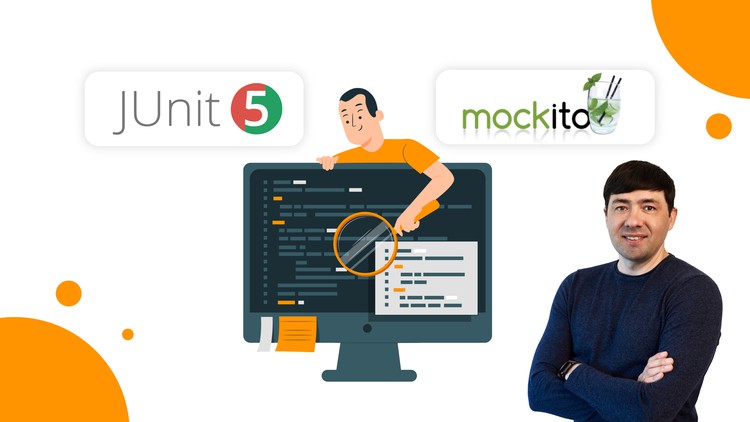Testing Java: JUnit 5, Mockito, Testcontainers, REST Assured
Unit Testing & Integration Testing of Java and Spring Boot applications. Test Driven Development(TDD) Explained.
4.62 (1961 reviews)

12,238
students
10.5 hours
content
Mar 2025
last update
$84.99
regular price
What you will learn
JUnit 5 - basic & advanced topics
Test Web Layer and Controllers
Test Java code with Mockito - the most popular Mocking Framework.
Test Data layer and JPA Repositories
Write Spring Boot Integration Tests
Test Business and Service layer classes
Master Test Driven Development (TDD)
Perform Integration testing with Testcontainers
Test RESTful Web Services with REST Assured
And more...
Screenshots




Related Topics
4602786
udemy ID
3/18/2022
course created date
8/24/2022
course indexed date
Bot
course submited by